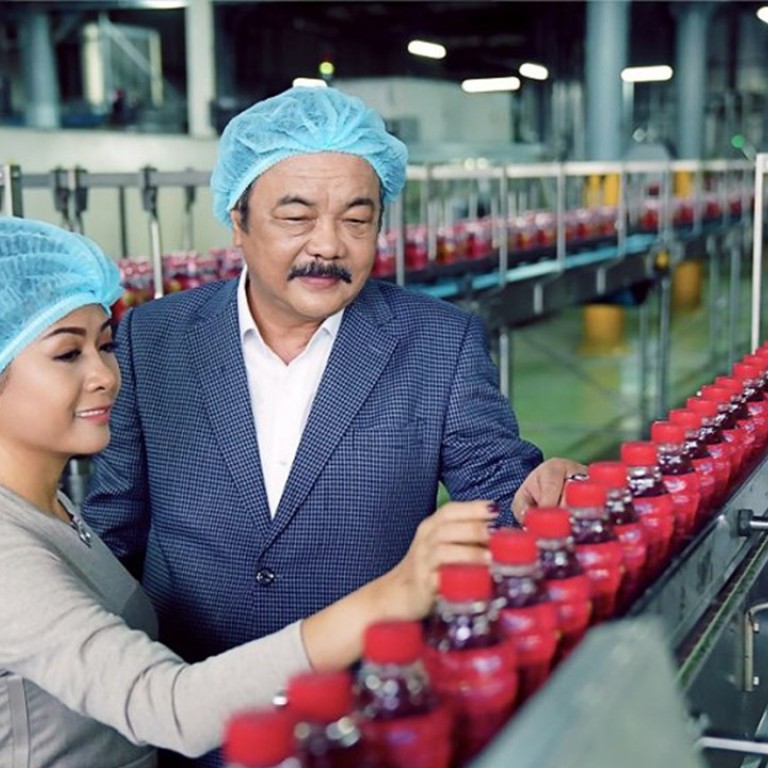
The Vietnamese family drinks firm that turned down Coca-Cola’s US$2.5 billion buyout offer
- Harvard-trained Phuong Uyen Tran charts the growth of her father’s drinks company – Vietnam’s largest – in book Competing with Giants
- He made his fortune after the Vietnam war, and rejected a buyout by Coca-Cola
In the opening pages of Competing with Giants, Phuong Uyen Tran describes the scene at the Coca-Cola Company headquarters in Atlanta, in the US state of Georgia, in 2012, where its CEO offered to pay US$2.5 billion to take over the family drinks business her father had built – only to be snubbed.
Coca-Cola executives were stunned at her father Tran Qui Thanh’s decision to walk away from the deal, she writes. Tran recalls her father’s words in the lift as they were leaving: “A partnership should be exactly that – a meeting of minds tied together by a shared passion. What we just experienced was not a meeting of minds.”
Speaking by phone from Ho Chi Minh City, Tran explains how her father had been thrilled at the prospect of his company, Tan Hiep Phat Beverage Group (THP), partnering with the US multinational. “Coca-Cola was like a big brother to us. Once they suggested we work together, it was exciting and we wanted to see if we could create a future with Coca-Cola,” she says.
However, after a series of talks at the regional level, they flew to Atlanta to meet Coca-Cola’s then CEO, Muhtar Kent, only to be disappointed with his proposals. Kent wanted Coca-Cola to gain a larger market share in emerging markets. That would rule out THP’s own expansion in Vietnam, Laos and Cambodia. The Vietnamese company was also expected to hand over its export business for Thailand, Australia and other countries in Asia, and stop producing new products.
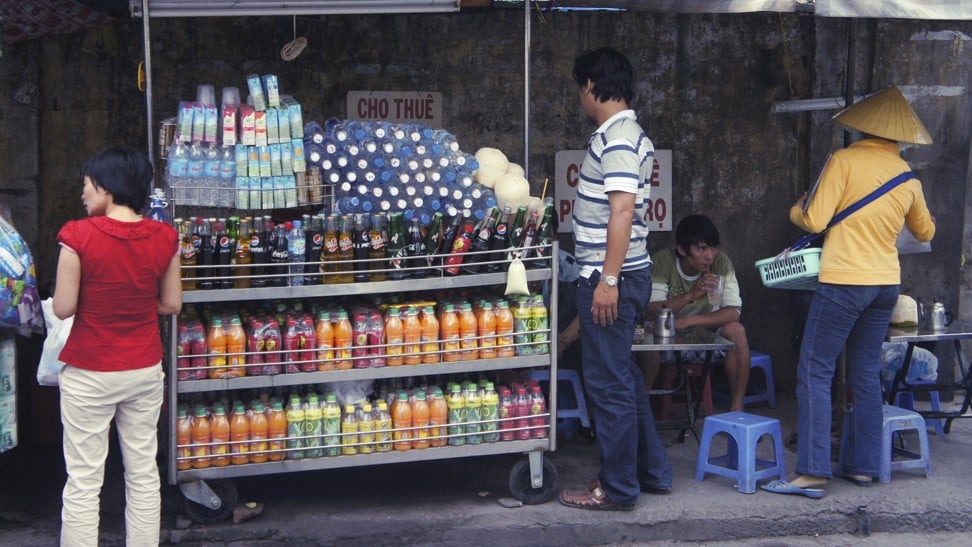
Finding the deal unacceptable, Tran Qui Thanh declined, then turned down the buyout offer.
THP may not be a household name outside its home market of Vietnam, but its drinks are popular in 16 countries, including Thailand, Cambodia, Laos, Australia and Russia. Among its bestselling products are Dr Thanh Herbal Tea, Zero Degree Green Tea, Number 1 Energy Drink and Number 1 Juicie Fruit.
How the company grew to become Vietnam’s largest private producer of fast-moving consumer goods is chronicled in Competing with Giants, giving context of the country’s challenging economic times in the aftermath of the Vietnam war.
Why there’s every reason not to drink snake wine in Vietnam
Tran, 36, was studying management at Harvard University in 2010 when she hit upon the idea for the book. Classmates were intrigued by how her father was able to build the company from scratch when an American trade embargo had crippled Vietnam’s economy.
She decided to write a book rather than a case study, “because it would take almost the same amount of time”. It took four years for Tran to write Competing with Giants, and it was published in August this year by ForbesBooks.
The three-year management course at Harvard was for owners, founders or senior management of companies valued at a minimum of US$10 million. Tran and THP easily made the grade: in 2015 the company notched up sales of US$500 million.
Tran Qui Thanh’s mother had died in a car crash in 1962 when he was nine years old, and he was sent to an orphanage run by nuns, where he stayed for six years. He was treated badly and had to fend for himself – an experience that nurtured his fighting spirit.
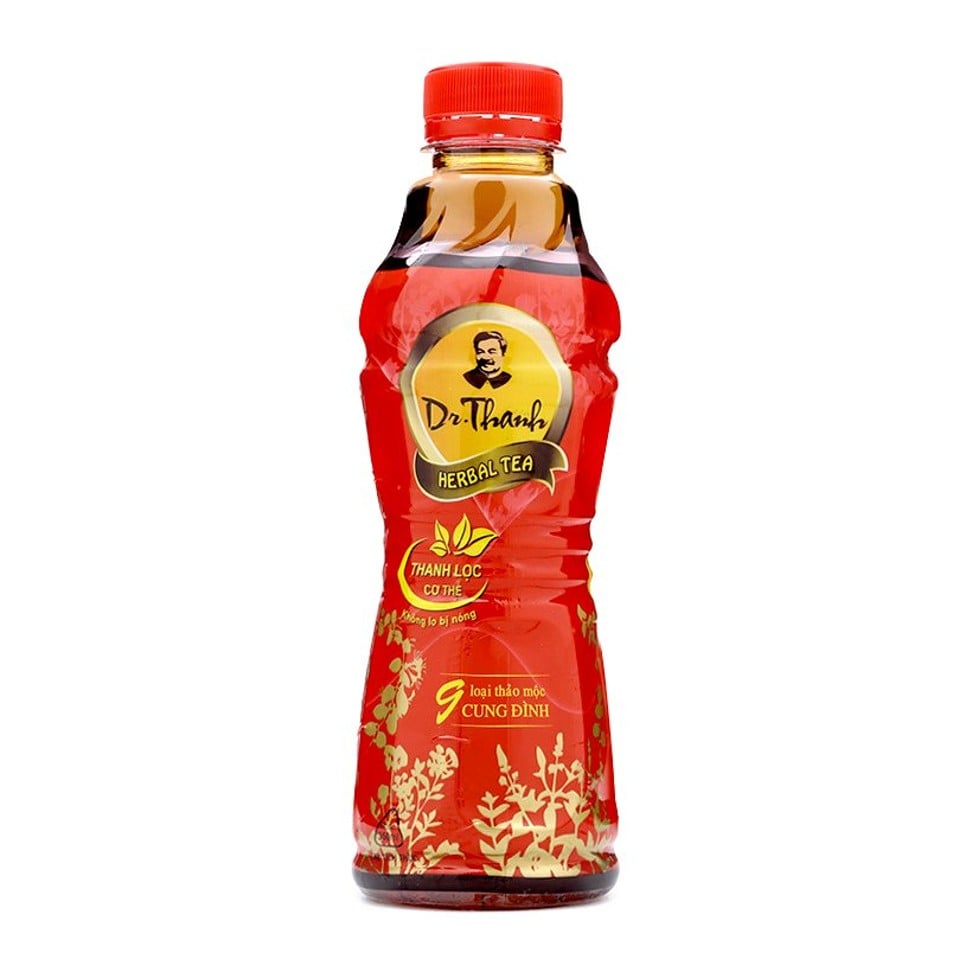
In the book, Tran describes how her father was punished for fighting by being made to sleep in a pigsty. When he was caught trying to add a pinch of chilli from the kitchen to liven up his bland meal, he was forced to eat a whole bowl of chilis in front of the nuns.
Coca-Cola to launch its first alcoholic drink in Japan
Nevertheless, in 1975, the year the war with the US ended, he graduated from university with a mechanical engineering degree and was employed by the Ministry of Mechanics and Metallurgy. Two years later, unhappy with his measly salary, Tran Qui Thanh started a business producing yeast. After a few other ventures, he began brewing beer and also established THP in 1994, the year the US lifted its trade embargo on Vietnam.
Tran Qui Thanh weaned the company off alcohol in the early 2000s, and focused on tea and soft drinks, which earned a higher profit margin.
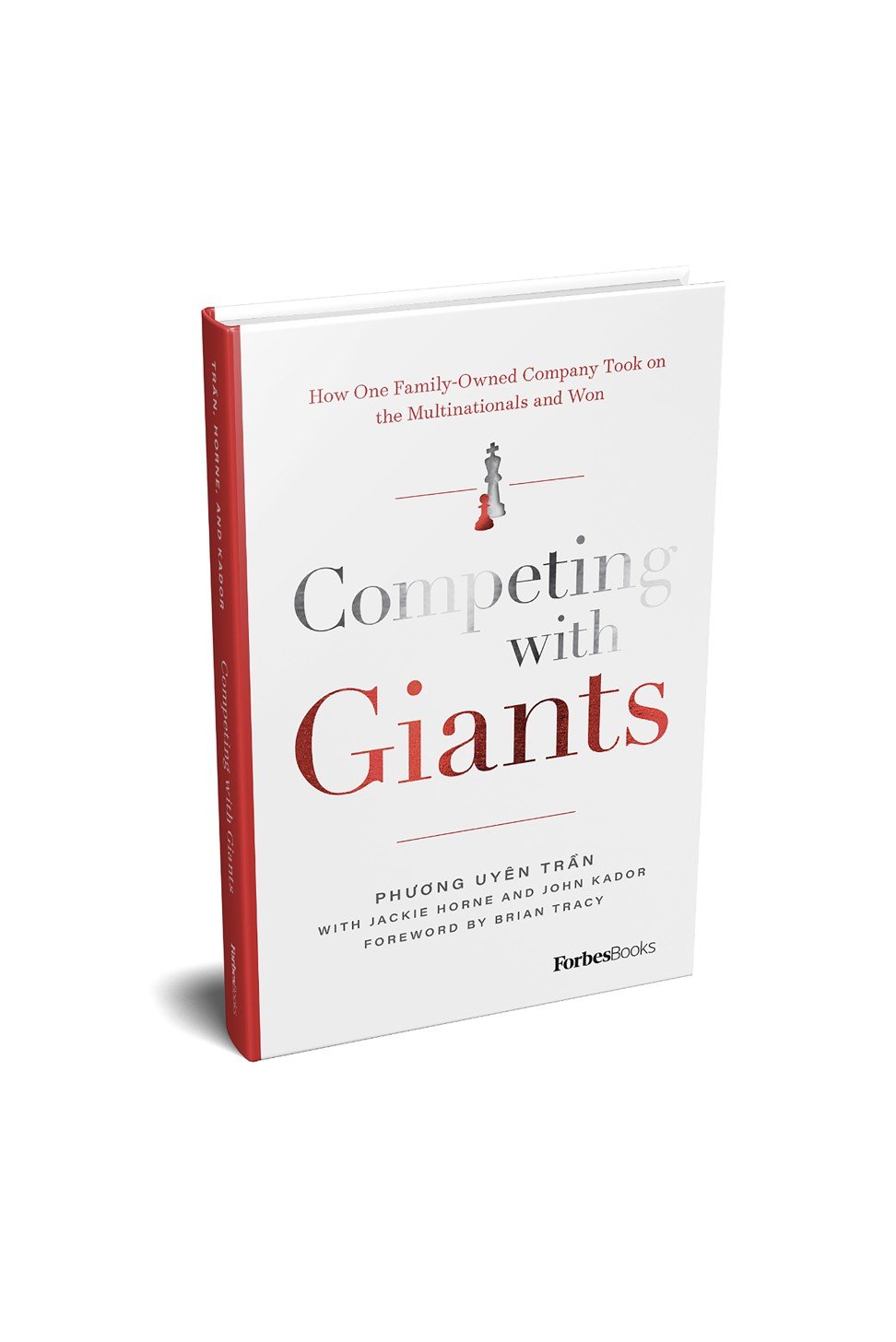
Tran writes that THP really took off between 2006 and 2009, when it grew by a whopping 400 per cent following the introduction of several new drinks.
It’s clear from the book how much Tran looks up her father, now 65. “I get inspired by him every day,” she says of Tran Qui Thanh’s determination not to give up. “He just keeps going forward. What I admire most about him is that he doesn’t complain about his life.”
How Hong Kong-style milk tea became part of local culture
Most of the stories she learned about her father’s upbringing came from her mother and other relatives, and she had to ask him to confirm them for the book.
Her parents’ relationship had a sweet start. They met working in the sugar industry – him processing it, her selling it. They married in 1979. Tran writes in the book that they complement each other: her father is the visionary with a logical mind, her mother, Pham Thi Nu, has strong people and sales skills. Tran says both are very ambitious. Her father’s favourite saying is: “Nothing is impossible. There are no limits to what we can accomplish.”
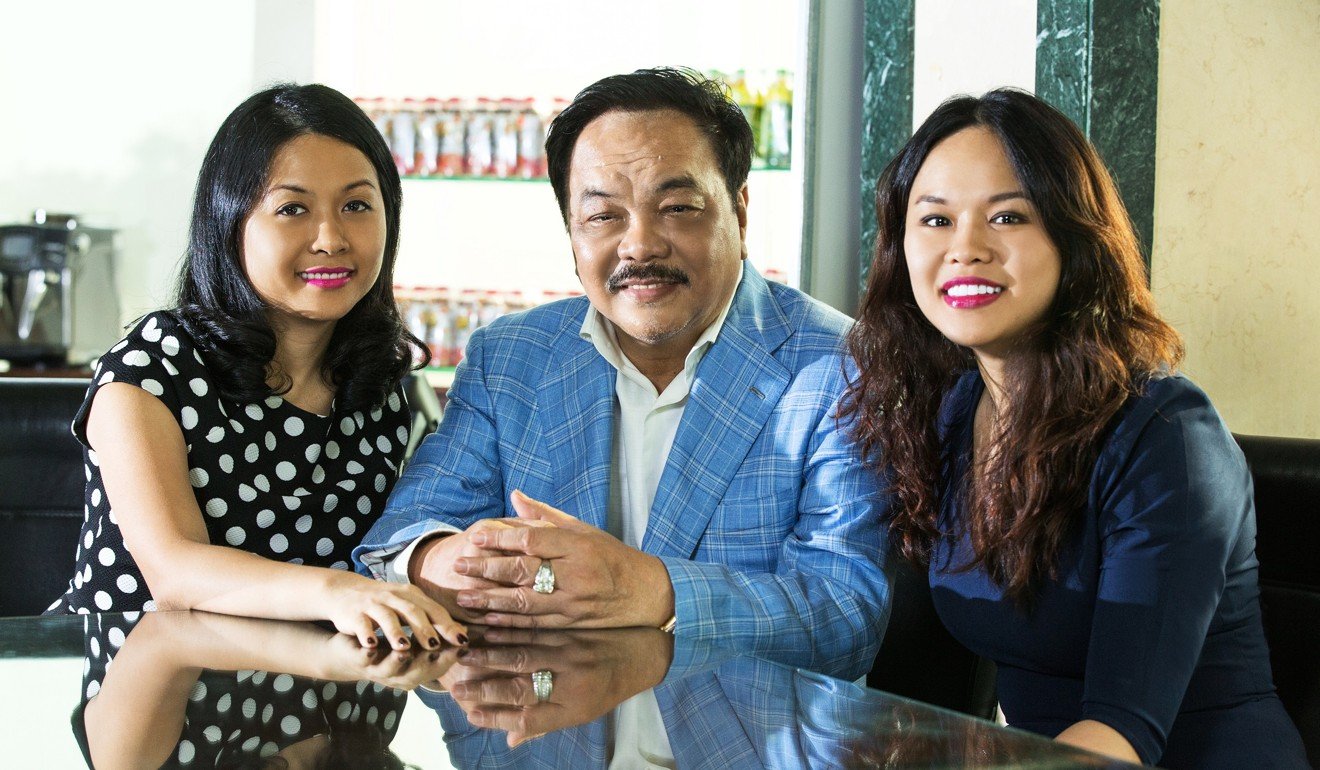
Tran has a younger sister, Tran Ngoc Bich, and a younger brother, Tran Quoc Dung, both of whom also work for the family business.
Tran believes it was inevitable she would work at the company because she always listened to her parents talk about work around the dining table. She was never asked to join – she had to earn her right to be there.
I knew it would be tough to join the company, especially for me, because my father is tough on me.
One way she achieved this was showing her interest in the digitisation of the company in 1999, helping to adopt an enterprise resources planning (ERP) process for business management. At the time, Tran was at university in Singapore, but she kept in touch with the IT department to keep abreast with how the programme was being implemented.
“Everyone is not familiar with the technology, so I thought it’s something I could learn and try,” she says. In the book she writes that the ERP programme revolutionised the company’s operations.
After university, Tran got a job offer in Singapore, but returned home to work for THP. “I knew it would be tough to join the company, especially for me, because my father is tough on me,” Tran says.
When Tran started in 2003, she began working as the secretary to the marketing director – and even had to negotiate her salary with her father.
“I also had to stop my mother from crying when my father scolded me,” she says. “If you did something wrong he would scold you right away. He treated me worse than other people.”
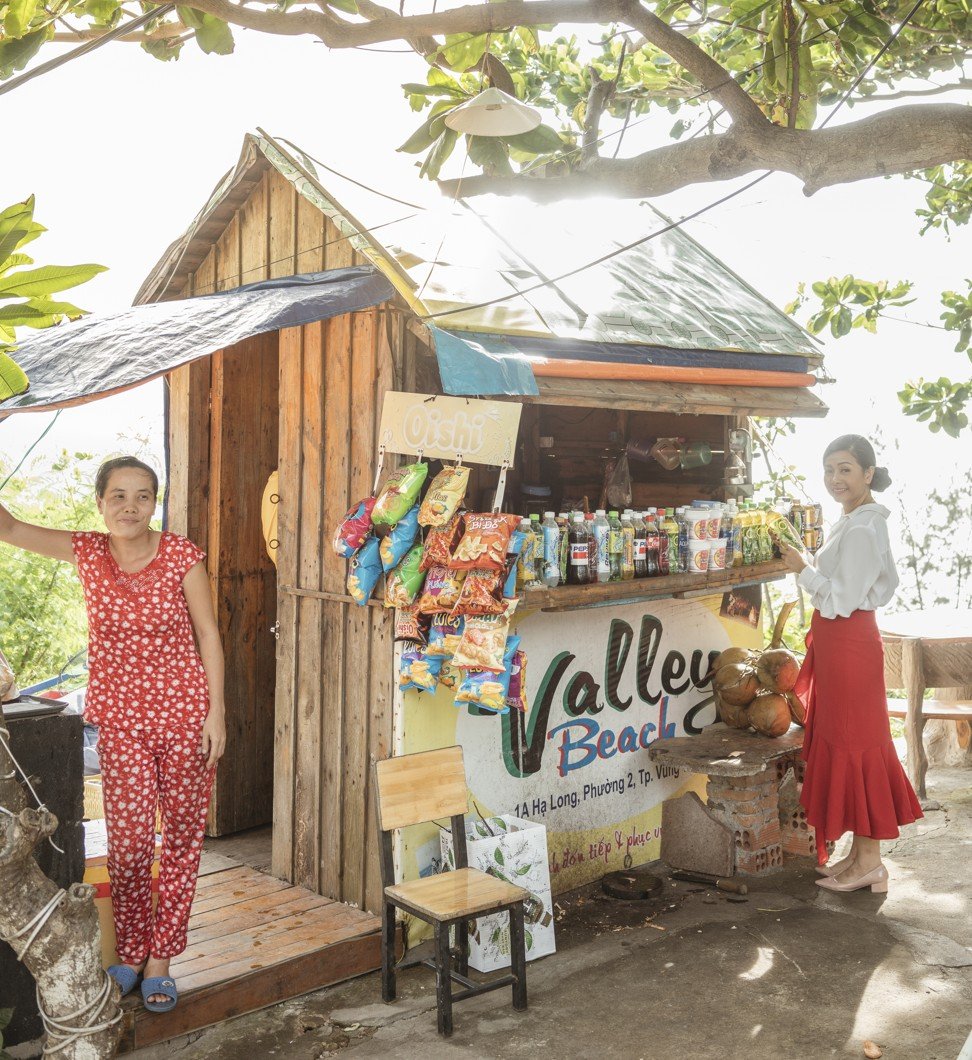
From there, Tran worked in various departments, and is now deputy CEO, in charge of procurement, digital, CSR, marketing services, international expansion and public relations. She admits it took seven years to gain a strong understanding of the company.
It wasn’t until Tran attended the Harvard management course eight years ago that she began to understand her father’s management practices.
Chinese skincare line that uses tea’s healing powers enters a crowded market
“I’m an idealistic person, so I had problems listening to my father’s reasoning for things, like addressing KPIs [key performance indicators] and really understanding the reality of the situation,” she says.
In Competing with Giants, Tran writes that THP’s goal is to achieve US$1 billion in revenue by 2023 and US$3 billion by 2027. When asked how it will be done, she is coy.
However, a recent report by the BBC says the company plans to set up US operations this year or next – the Coca-Cola’s Company’s home base.
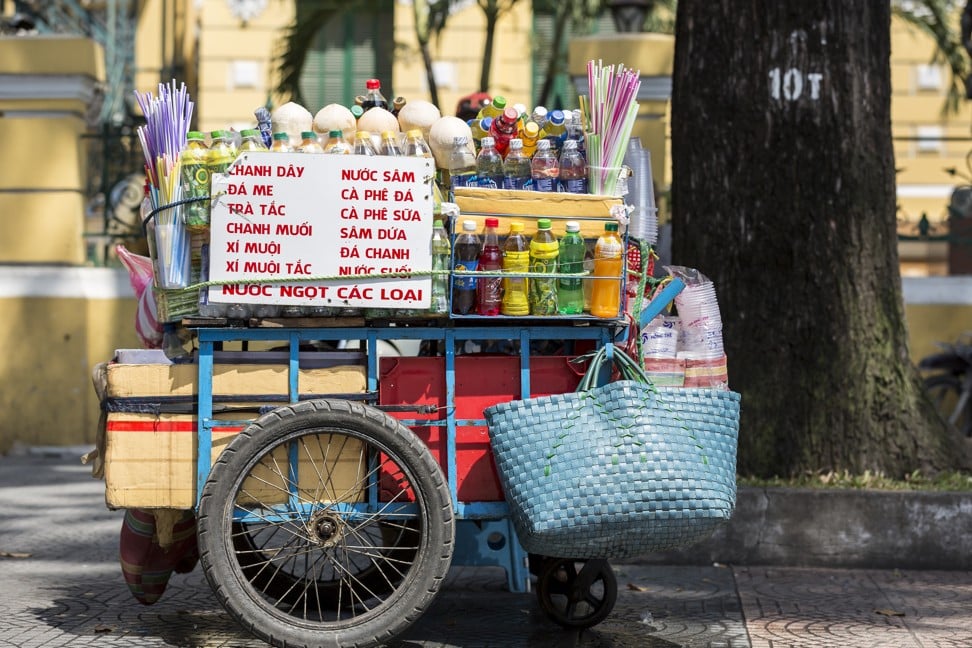
The company’s public relations agency says THP will grow its business by investing in technology, expanding internationally (only 10 per cent of its business is exports), and launching new products.
In the same BBC report, Tran Qui Thanh is quoted as saying: “When we first started [THP] we had just 20 employees and produced one million litres a year, about 3,000 a day. Today we have more than 4,000 employees and produce more than one billion litres a year.”
That’s still not enough for the patriarch. He hopes THP will become an international brand. In the way Samsung is associated with South Korea, and Toyota is synonymous with Japan, he hopes THP will spring to mind when people think of Vietnam.
His daughter’s mission is to help him achieve that dream.

